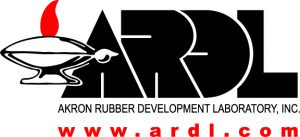
ARDL test…Sahara is the only tire casing product that has been tested and passed by ARDL, one of the most recognized labs in the world for tire/rubber testing. The test was based on OEM test standards and TMC RP.
ARDL test – EXECUTIVE SUMMARY:
It clearly shows and proves that the tire with Sahara will run cooler and if compared to tires run in the real world without Sahara the temperature difference witnessed has been as high as 20%. Tire temperatures varies on speed, elevation, ambient temperature and load and therefore every fleet depending on these factors will vary in the percentage.
The purpose of this work is to determine the effect of Sahara on tire durability (particularly its effect on the inner-liner and plycoat compounds). The effect was measured on roadwheel tested tires with and without Sahara. The tire integrity was measured by shearography before and after roadwheel testing. The tire surface running temperatures and inflation pressures were monitored. Tire component (innerliner and plycoat) mechanical properties were measured in new and tested tire with and without Sahara.
The tire tread and sidewall surface temperatures were measured as a function of roadwheel time. The tire inflation pressures were measured as a function of roadwheel time. Slightly better pressure in the tire with Sahara was observed at 15 days and at the end of the roadwheel testing.
The innerliner from the tire with Sahara had slightly higher tensile strength and elongation to break, and slightly lower modulus than the tire without Sahara. The tire with Sahara had (significantly improved) lower hardness than the tire without Sahara. The improved property retention is attributed to protection against oxidation provided by Sahara
Ambient temperature was measured at each tire, both tires were within ASTM ambient temperature specification. JHNB1-22-2 (without Sahara) starting conditions were 100PSI /90.5T andJHNB1- 22-1(with Sahara) starting conditions were 100PSI /95.2°F. Average temperature during the roadwheel test for JHNB1-22-2 (without Sahara) was 99.3°F and the average temperature for JHNB1-22-1(with Sahara) was 100.4°F. At the end of the roadwheel test, tire JHNB1-22-2 (without Sahara) had 108PSI at 100.2°F and tire JHNB1-22-1(with Sahara) had 110PSI at 98.5°F. Slightly better pressure in the tire with Sahara was observed.
The test started with Sahara tire being higher in temperature. During the test the tire without Sahara went up to 99.3F. An increase of 8.86% and the tire with Stallion Sahara went up by 5.18%. At the end of the test the tire without Sahara was recorded at 100.2F. An increase of 9.68%. At the end of the test the tire with Sahara was recorded at 98.5 F. A decrease in temperature by almost 2%. The tire inflation pressures are shown in Figure 9. The tire with Sahara provided consistently better (higher) inflation pressure retention during and at the end of the roadwheel testing.
It clearly shows and proves that the tire with Sahara will run cooler and if compared to tires run in the real world without Sahara the temperature difference witnessed has been as high as 20%. Tire temperatures varies on speed, elevation, ambient temperature and load and therefore every fleet depending on these factors will vary in the percentage.
Tire Durability & Integrity Test (Test #PN93599)
- Improved inflation pressure with TCC products
- Improved lower casing hardness with TCC products
- Improved inner tensile strength with TCC products
Chamber Test (Test # PN94504)
- TCC products do not support combustion.
- GC/MC Test (ENTNB5-24-1)
- TCC products do not support combustion and will not cause a fire in the retread chamber
Full test report PDF
The Scientific Research and Experimental Development (SR&ED)
Sahara qualified with SR&ED as a ground up technology.
